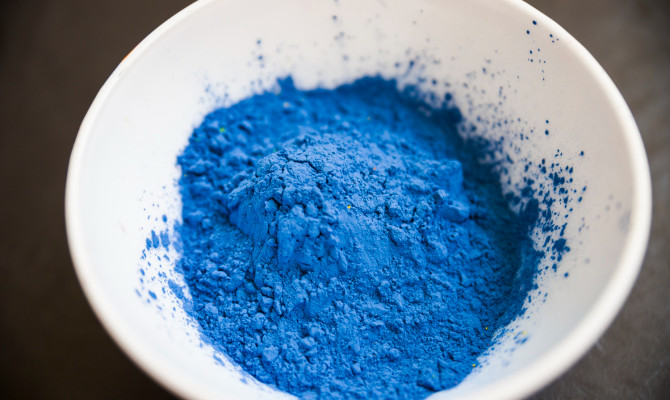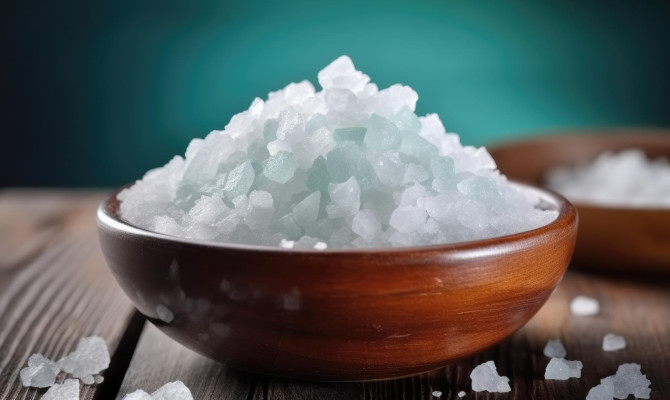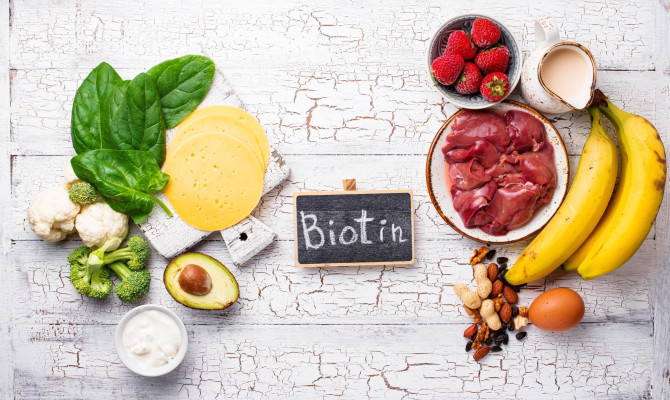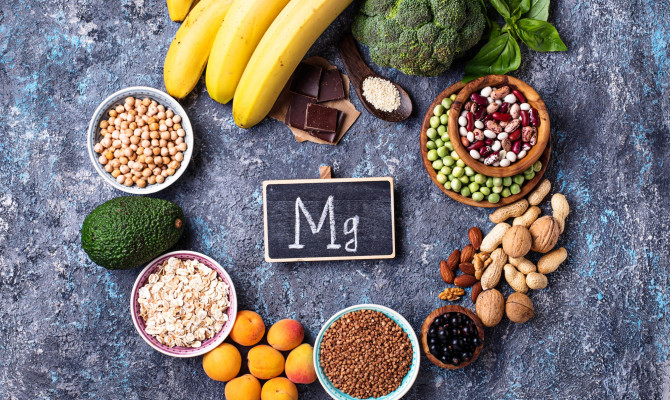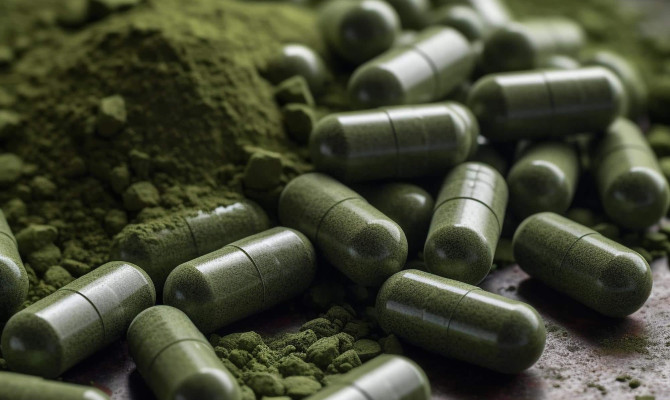Health benefits of Psyllium Husk

- Psyllium Husk
- 17 Aug 2023
Overview
What is Psyllium Husk?
Plantago ovata seeds make psyllium husk, a soluble fiber used as a nutritional supplement and cultivated mainly in India. It is also referred to as ispaghula or isabgol. Psyllium husk’s high fiber content provides various benefits, including better digestion, heart wellness, and weight management. It has been used for years as a natural digestive treatment.
This article will overview psyllium husk, including its health benefits, side effects, dosage, administration, risks, safety and precautions, and drug interactions.

Health benefits
Health benefits of Psyllium Husk
Psyllium husk has the following health benefits:
- Controls cholesterol levels.
- Maintains blood sugar levels.
- Helps with weight management.
- Promotes intestinal health.
- Relieves diarrhea.
Controls cholesterol levels
- Psyllium husk’s soluble fiber can help decrease blood cholesterol by attaching to bile acids which is then sent out from the body.
- This may decrease the likelihood of heart disease1Health benefits| Researched based study from Nlm.nih.gov
Maintains blood sugar levels
- Psyllium husk may help people with diabetes manage their blood sugar levels by reducing sugar absorption and preventing blood glucose from skyrocketing2Health benefits| Researched based study from Nlm.nih.gov
Helps with weight management
- Psyllium husk’s high fiber content promotes fullness, reduces appetite, and aids in weight management3Health benefits| Researched based study from Ijsr.net
Promotes intestinal health
- Psyllium husk is a laxative that promotes regular bowel movements and relieves constipation. It can also help relieve irritable bowel syndrome’s (IBS) symptoms4Health benefits| Researched based study from Nlm.nih.gov
Relieves diarrhea
- According to research, psyllium supplements can manage diarrhea by absorbing water from the gut.
- It can thicken the feces and delays its travel through the colon5Health benefits| Researched based study from Nlm.nih.gov
Supplement
Dietary supplement
- Psyllium is available for oral use in powder, granules, capsules, liquid, and wafer forms6Supplement| Researched based study from Mountsinai.org
- It is usually taken up to three times each day.
- It’s a key component in numerous over-the-counter laxatives, including Metamucil.
Dosage
How to take Psyllium Husk?
- It should be taken with at least 8 ounces of fluids to ensure that psyllium works correctly and without side effects7Dosage| Researched based study from Medlineplus.gov
- They must be thoroughly chewed before ingesting if taken as wafers.
- Psyllium husk can be taken before bedtime or first thing in the morning.
- Use psyllium precisely as recommended by a doctor or pharmacist or as instructed on the container for the dose.
- Take it only as your doctor directs, neither more nor less than that amount or more frequently.
- Fiber should be consumed by children from the diet. Only give psyllium supplements to a youngster under the supervision of a doctor.
The daily dose of psyllium husk advised varies based on the intended application:
- Psyllium is commonly used in 5 to 10 g doses with meals at least once a day.
- 5 g with a glass of water three times a day is a common starting point for a bulk laxative supplement. People can progressively raise this if they find it tolerable.
- Start with tiny doses of psyllium as a dietary fiber supplement and gradually increase intake while staying hydrated.
- Your doctor may recommend higher psyllium doses to address specific ailments.
Side effects

Side effects of Psyllium Husk
Psyllium husk has the potential to induce the following adverse effects:
- Bloating.7Side effects| Researched based study from Medlineplus.gov
- Increased flatulence.
- Increased burping.
- Abdomen pain.
- Nausea.
- Vomiting.
- Skin rash.
- Difficulty swallowing.
- Allergic reactions like itching, skin rashes, and breathing difficulty.
Precautions
Precautions and safety
Precautions to be taken while having Psyllium Husk are:
- People with known hypersensitivity to psyllium husk should notify their doctor and avoid taking it8Precautions| Researched based study from Nlm.nih.gov
- People with known or suspected intestinal blockages should avoid taking Psyllium supplements.
- Before using psyllium husk, individuals who have difficulties swallowing, esophageal narrowing, or other swallowing issues should visit a healthcare practitioner.
- People with a condition called phenylketonuria should be cautious as some psyllium preparations may have aspartame as a sweetening agent9Precautions| Researched based study from Medlineplus.gov
- Failure to drink enough water when taking psyllium supplements may result in constipation, bowel obstruction, abdominal pain, bloating, and other symptoms.
Safety
- When appropriately utilized, psyllium husk is generally safe to consume. However, before introducing psyllium husk into one’s regimen, consulting with a healthcare practitioner is critical.
- Choose psyllium husk goods from recognized companies with high-quality standards and positive customer feedback.
- If possible, use organic psyllium husk to reduce exposure to pesticides and other toxins.
- To minimize difficulties, taking the correct dosage and drinking plenty of water throughout the day is critical.
- It is safe to take psyllium husk supplements daily. However, consuming psyllium for more than a week without a doctor’s recommendation is not advisable.
- Ensure to eat psyllium husk with plenty of water to avoid choking or intestinal blockage.
Interactions
Interactions of Psyllium Husk
Certain drugs, such as those in the following list, may interact with psyllium husk :
Antidepressants
- Dietary fiber has been proven to reduce blood levels and the efficacy of tricyclic antidepressant drugs such as amitriptyline, doxepin, and imipramine.6Interactions| Researched based study from Mountsinai.org
Digoxin
- Fiber supplements, such as psyllium husk, may limit the absorption of digoxin, a drug used to control heart function. To avoid this, avoid taking digoxin within 3 hours of consuming psyllium9Interactions| Researched based study from Medlineplus.gov
Diabetes medications
- Fiber supplements may also decrease blood sugar levels, increasing the likelihood of low blood sugar when taken along with drugs to reduce blood glucose.6Interactions| Researched based study from Mountsinai.org
Carbamazepine
- When combined with psyllium husk, the fiber may reduce the absorption and effectiveness of carbamazepine, a seizure medication6Interactions| Researched based study from Mountsinai.org
Salicylates
- Psyllium husk, combined with salicylates such as aspirin, can limit aspirin absorption10Interactions| Researched based study from Nlm.nih.gov
Not every medicine that might interact with psyllium is on the above list. As a result, before using psyllium husk supplements, see a healthcare expert to rule out any potential problems with your current prescription regimen.
Bottom line
The Bottom Line
While psyllium husk is typically safe for most people, following the specified dosage and guidelines is critical. Always begin with tiny doses and gradually increase your consumption to give your body time to adjust. Remember that a well-balanced diet, frequent exercise, and an overall healthy lifestyle are essential for optimal health. Psyllium husk can help supplement these efforts, but it should not be used in place of them.
Any feedback on this article?
 This Articles content was accurate
This Articles content was accurate Very Informative Article
Very Informative Article I have a question or a comment
I have a question or a comment
 This article contains inaccurate content
This article contains inaccurate content This article was not helpful
This article was not helpful I have a question or a comment
I have a question or a comment
We appreciate your helpful feedback!
Checkout our social pages
References
-
National Library of Medicine
Long-term cholesterol-lowering effects of psyllium as an adjunct to diet therapy in the treatment of hypercholesterolemia | Health benefits
-
National Library of Medicine
Effects of psyllium on glucose and serum lipid responses in men with type 2 diabetes and hypercholesterolemia | Health benefits
-
International Journal of Science and Research
Psyllium (Plantago ovata) Husk: A Wonder Food for Good Health | Health benefits
-
National Library of Medicine
Inflammation in Irritable Bowel Syndrome (IBS): Role of Psyllium Fiber Supplementation in Decreasing Inflammation and Physiological Management of IBS | Health benefits
-
National Library of Medicine
Fiber supplements and clinically proven health benefits: How to recognize and recommend an effective fiber therapy | Health benefits
-
Mount Sinai
Psyllium | Supplement
-
Medline Plus
Psyllium | Dosage
-
National Library of Medicine
Psyllium hypersensitivity | Risk
-
Medline Plus
Blond Psyllium | Interactions
-
National Library of Medicine
To study the effect of ‘Isabgol’ on absorption of ‘Aspirin’ | Interactions













